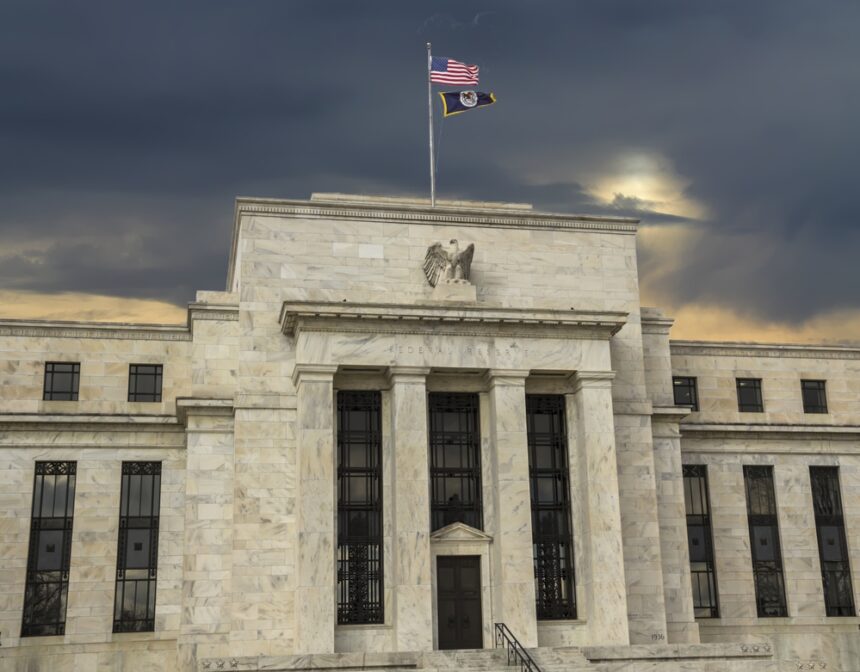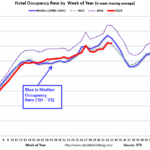In a recent interview Alex TabarrokI saw this exchange:
Oren Hoffman (52:52.27)
Now, your colleague Tyler Cohen has recently argued that he is a peak economist and that you no longer need to be an economist to be a member of the Federal Reserve Board. What do you think about this?
Alex (53:09.104)
Arthur Burns was, I think, the first person with a Ph.D., and there have been quite a few since, but before that, there were many members of the Federal Reserve Board who did not have Ph.D.s in economics.
There’s a lot to unravel there:
1. Have we reached peak economics?
2. Do we need economists to decide monetary policy?
In my view, monetary economics peaked in the period before the Great Recession of 2008 and has declined somewhat since then. The second question is much harder to answer. Let’s start with an analogy that illustrates a common mistake made when thinking about these types of problems.
Imagine you were asked for your opinion on how to improve a poorly governed democratic country. What would be your solution? Perhaps you despair that voters are electing the wrong politicians. You would propose turning the country into a dictatorship and appointing someone like Lee Kuan Yew as head of state.
I think you can see the problem. you When you’re a dictator, you don’t get to choose who gets appointed. When a country becomes an autocracy, it’s a dog-eat-dog world to rise to the top. The successful person is far more likely to look like Nicolas Maduro or Vladimir Putin than like Lee Kuan Yew.
In the case of monetary policy, the question is not whether Ben Bernanke, Janet Yellen, or Jay Powell did the best job, but what type of person is likely to achieve the best results. To further complicate things, the performance of the Fed Chair is not the same as the performance of the Fed as a whole, because decisions are made by committee. In my view, the Fed as a whole has performed better under Chair Yellen than under her predecessor or successor, but we don’t know how much of that is due to her decisions and how much is due to bad luck on the part of others. Simply put, it’s complicated.
Other government agencies face similar dilemmas: Do you need a law degree to work for the Supreme Court? Is that desirable? Do you need a finance degree to work for the Securities and Exchange Commission? Is that desirable?
It won’t be long before questions arise about whether AI can be as effective as humans.
I’m an elitist, but not a credentialist. I’m a big proponent of hiring people with strong expertise in monetary policy to the Fed (as some Fed officials do today, but not all do). But I don’t really care whether they have a PhD in economics. For example, I think Tyler Cohen would make an above-average Supreme Court justice, even though (to my knowledge) he has no law degree. Of course, his votes are not “credible,” so he’ll never be appointed.
I find that most people are overconfident in their ability to implement monetary policy well. That probably applies to me too, since it’s always hard to have an unbiased view of one’s own abilities. Overconfident people tend to have a thought process that goes something like this: “The Fed Chairman really screwed up! I can do better than him.” On the first point, they’re often right, but on the second point, I’m less sure.
People, for natural reasons, tend to remember their successes more than their failures: They remember asset price bubbles that they correctly predicted, but forget about assets that went up even more after they predicted them. Negative correlation There is a huge gulf between people who had sound opinions about monetary policy in 2009 and people who have sound opinions about monetary policy in 2021 (including me).
You may have heard the opinion that it would be better to be governed by people randomly picked from a Boston phone book, rather than by a Harvard professoriate. But on closer inspection, is that really true? Professors have a lot of strange views, but so does the public. For example, opinion polls show that the public supports surprisingly authoritarian policy proposals. And even if the public has healthier views than most professors on “woke” issues, it’s questionable whether they have healthier views on issues like where to set the bank reserve interest rate.
One might argue that they are not advocating picking Fed staff from the phone book, but appointing very experienced people from the banking and finance industry. Sorry, but I would rather appoint a plumber to the Fed. At least a plumber would show that they don’t know what they’re doing, and we’d be more likely to lock them in with restrictive policy rules or let the Fed staff decide. Many of the top people in finance and banking are astonishingly ignorant of the basics of monetary economics, but they don’t know it. If you think “reasoning from price changes” is a failing of some economists (and it is), check out some of the comments made by top business people: “If we cut interest rates too much, people might get scared and demand might fall”; “If we raise interest rates too much, it might put money in savers’ pockets and demand might increase.” It makes me want to cry.
Among economists, inferring from price changes is like a mild fever; among non-economists, it’s a global pandemic.
So yes, economists probably know more about monetary policy than non-economists on average. But the Fed chairman can’t just be smart, he has to be an effective leader. Businessmen often have the advantage here. In the end, it’s one of those 55% to 45% ratios where economists have a slight edge, but I suspect it’s hard to tell the difference because non-economists outnumber economists so often. That said, being on the Fed board is the only position I know where ignorance is better than knowledge.
PS: This post explains averages. I have met several people in business and finance who know a lot about monetary policy.
PPS, this post focuses on the issue of monetary policy making. Of course, banking regulation requires people with banking expertise. It would be good to follow the UK practice of having separate committees for these two tasks.
PPPS. Readers of this blog know that I am opposed to discretionary monetary policy, and this post is based on the assumption that things will not go my way, at least not for the time being.





